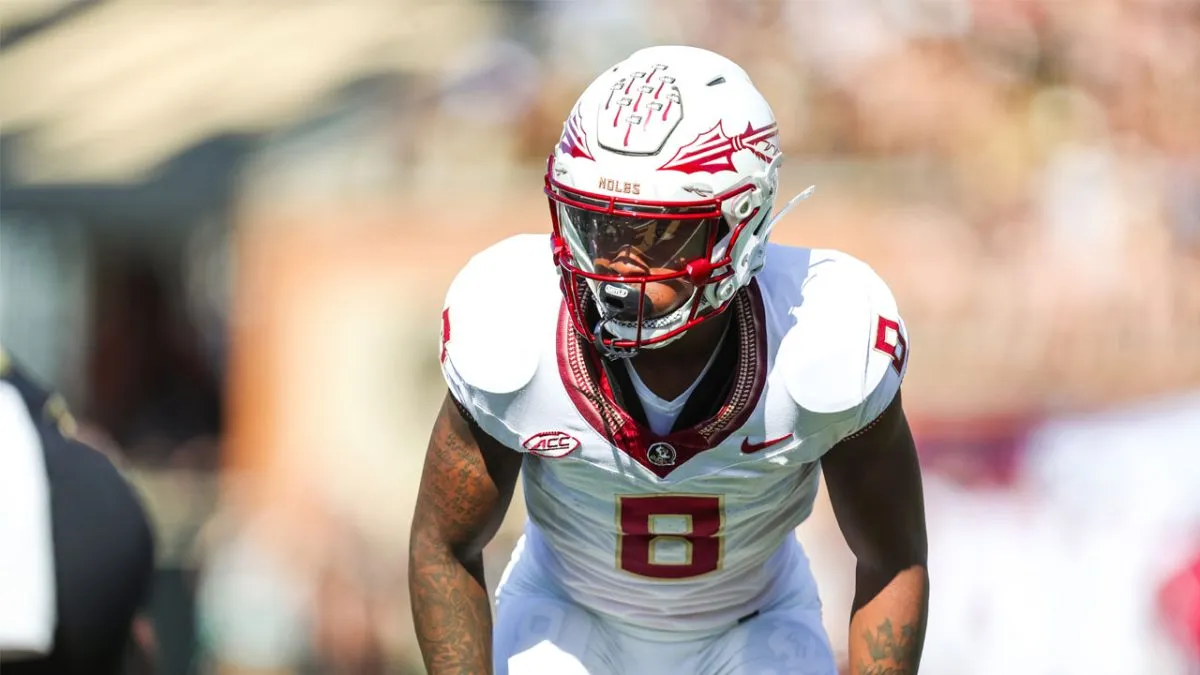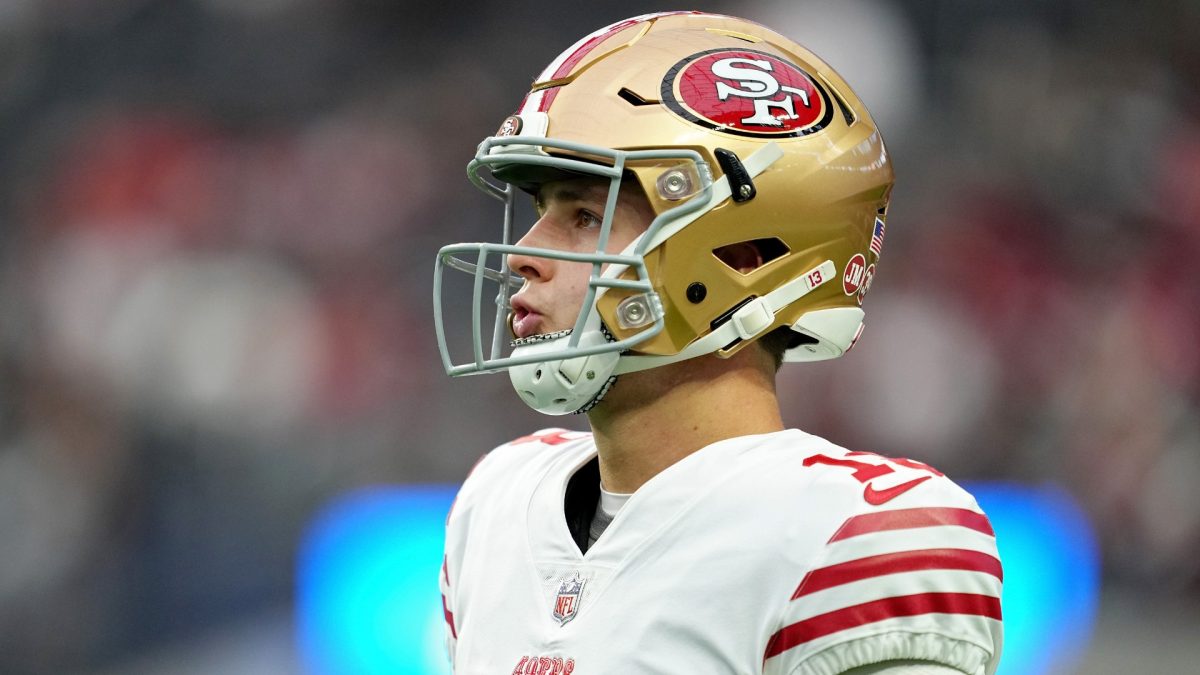Growing up around the franchise his father, the legendary Al Davis, controlled for a half century, Mark Davis is never far from the memories that come when sifting through history. Which has made this year, the Raiders' last in Oakland, so fraught with emotion.
But not for the obvious reason, the team leaving its ancestral home.
Oh, sure, there is regret about how the Raiders' return to Oakland unfolded, the team coming back in 1995, after 13 years in Los Angeles, hoping but failing to regain the football dominance and local devotion that defined it from the mid-1960s through 1980. Part II never reached the heights of Part I, with Super Bowl victories, and the team and community forming a bond so tight that, to many, their 1982 departure was not unlike losing a family member.
Stay in the game with the latest updates on your beloved Bay Area and California sports teams! Sign up here for our All Access Daily newsletter.
That precise feeling has landed upon Davis this year. He is operating beneath a shroud of sorrow not because the team has all but extinguished its playoff hopes or because the last game in the faded, fabled Oakland Coliseum, scheduled for Sunday afternoon, will signal the end an era.
It’s because the Raiders are family to Davis, and many of his family members have left over the past 12 months.
Josh Atkinson, son of former Raider George Atkinson, passed away last December. His service in January was the beginning. In the months since, the Raiders have lost, to name a few, former running back Clem Daniels (March), former linebacker Dan Connors (April), former assistant coach Gunther Cunningham (May), Hall of Fame semifinalist Cliff Branch (August), former linebacker Neiron Ball (September) and Hall of Fame cornerback Willie Brown (October).
George Atkinson III, twin brother of Josh, died Nov. 29, three days before what would have been his 27th birthday.
NFL
“I’ve never seen anything like it in my life,” Davis said Friday. “To lose Cliff and Willie, so close together ... Willie was one of my mom’s best friends. And Cliff was my best friend. Those were really tough.
“It started with Josh. That was the early bookend. And now George, two weeks ago, is the other bookend. I hope. We still have another three weeks to go.”
Davis copes with the grief, he says, by compartmentalizing everything. There is an NFL team to run, meetings to attend -- such as two days in Dallas earlier this week -– and decisions to make that could affect the lives of thousands of people.
He understands there will be broken hearts, once more, when the team packs up and heads to Las Vegas. He also hopes fans will continue to support the team that in many ways gave Oakland an identity that spread around the globe.
“There’s no question about it,” Davis said. “The Raiders and Oakland grew up together. We were the stepchild of San Francisco. We were just Oakland. And I believe my dad took special pride in that and in building it up.
“The Raiders were born in Oakland, and Oakland will always be part of our DNA. There’s no doubt about that.”
The magic that made the Raiders special beyond the confines of the NFL was built in the 1960s and 1970s, behind stars such as Ken Stabler, Jack Tatum, Gene Upshaw, Lester Hayes, Jim Plunkett, Brown and Branch. They were high-profile, near-mythic figures, none more than Al Davis, the swaggering brash man at the top, taking no prisoners.
Part II in Oakland mostly was a disaster. The finances pleased no one. The team floundered through its worst of times. When Al Davis died in 2011, the Raiders had not had a winning season in eight years.
[RELATED: Derek Carr's special bond with Coliseum]
Which is why Mark Davis spent six years, beginning shortly after his father’s death, chasing Jon Gruden, whose culture change in 1998 pushed the team to three consecutive postseasons. Gruden finally relented in January 2018, lured back by a 10-year contract worth $100 million.
“We’re in a better place now,” Davis said. “We’ve got stability for the next 10 years.”
As the team goes to Vegas, the memories, good and bad, remain mostly in Oakland. Still, Davis’ fondest recall of Raiders in Oakland, Part II, is rather surprising inasmuch it did not occur in Gruden’s first term as coach or in any of the four playoff seasons over the past 24 years.
No, it came during the unremarkable two years during which Dennis Allen was the coach.
“The most memorable night, to me, was that Thursday night game against the Chiefs,” Davis said of a game played in 2014. “We were 0-10. It was pouring rain. The place was sold out and crazy. The crowd filled it up. We beat them (24-20) and got our first win of the season.
“That night was a reminder of what the Raider Nation is all about, and how they’ve supported the team and, hopefully, will continue to support the team in the future.”
That future will take place in Las Vegas, where $2 billion, 65,000-seat Allegiant Stadium, with a retractable dome, reportedly is 75 percent complete and expected to be ready to open before the 2020 season. It will have grass turf on a field that can be slid into and out of the stadium, as is the case with University of Phoenix Stadium, home of the Arizona Cardinals.
This, Davis insists, is the result of failed negotiations to keep the Raiders in Oakland. After numerous attempts over the past decade to strike a deal that would allow the team to remain in place, it reached a point where it became clear to Davis and his fellow NFL owners that the bargaining would not reach a satisfactory conclusion.
[RELATED: Raiders legends will struggle with Coliseum goodbye]
Vegas was waiting. The desert mecca flashed wads of cash and acres of land, and, well, Davis and his group decided to jump.
“The Oakland Raiders were established in 1960,” Davis said. “The Los Angeles Raiders were established in 1982. And the Las Vegas Raiders are being established in 2020. It’s a new era, and we’ve got a new residence.”
Davis said he’s not particularly nostalgic about Part II in Oakland. He went through all of that back in 1982. It’s about business now, and cherishing memories created by years of football but ultimately populated by people within the Raiders family.


